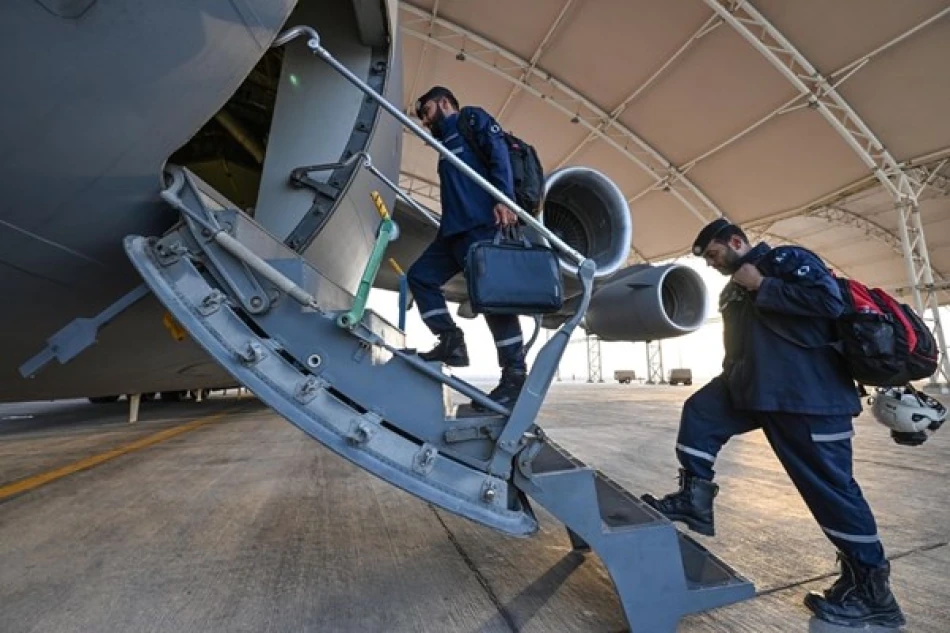
Rapid Response: Joint Operations and Rescue Teams Deployed to Afghanistan
UAE Deploys Emergency Response Teams to Afghanistan Following Devastating Earthquake
The United Arab Emirates has launched a comprehensive humanitarian mission to Afghanistan, dispatching specialized search and rescue teams alongside emergency aid following a major earthquake that struck the country's eastern regions. The swift response, ordered directly by President Sheikh Mohammed bin Zayed Al Nahyan, underscores the UAE's growing role as a regional humanitarian leader and reflects its strategic approach to soft power diplomacy in crisis situations.
Immediate Response and Operational Strategy
Joint Operations Command personnel and UAE search and rescue specialists departed for Afghanistan to begin field assessment operations in coordination with local authorities. The mission focuses on maximizing rescue efficiency, expanding response coverage, and providing logistical support to affected areas while prioritizing the extraction of survivors from debris.
This rapid deployment model has become a hallmark of UAE crisis response, similar to their interventions during the 2023 Turkey-Syria earthquake and previous natural disasters across the region. The coordinated approach between military logistics and civilian rescue operations demonstrates the institutional maturity of UAE's humanitarian apparatus.
Multi-Pronged Aid Strategy
Parallel to the rescue mission, the UAE Red Crescent is delivering urgent humanitarian supplies including basic relief materials, medical supplies, and emergency shelter equipment. This dual-track approach—combining immediate rescue capabilities with sustained relief support—maximizes impact during the critical first 72 hours when survival rates remain highest.
Strategic Implications for Regional Diplomacy
The UAE's intervention in Afghanistan carries significant diplomatic weight beyond humanitarian considerations. Despite the complex political situation in Afghanistan since 2021, the UAE has maintained pragmatic engagement channels, positioning itself as a reliable partner for crisis response regardless of political circumstances.
This approach mirrors successful humanitarian diplomacy strategies employed by countries like Turkey and Qatar, where disaster relief serves as a vehicle for maintaining international relevance and building goodwill. For the UAE, such missions reinforce its image as a stable, capable regional power while creating diplomatic capital that extends beyond immediate crisis response.
Operational Excellence as Soft Power
The UAE's emphasis on coordination with local authorities and systematic field assessment reflects lessons learned from international best practices in disaster response. This professional approach contrasts with less organized aid efforts and helps establish the UAE as a preferred partner for future humanitarian cooperation.
Broader Context of UAE Humanitarian Leadership
This Afghanistan mission represents part of a broader UAE strategy to establish itself as a global humanitarian hub. The country has systematically built institutional capacity through organizations like the UAE Red Crescent and has invested heavily in rapid-response capabilities that can be deployed internationally within hours of a crisis.
The economic implications extend beyond immediate costs, as humanitarian leadership enhances the UAE's international standing and supports its broader economic diplomacy objectives. Countries that demonstrate reliable crisis response capabilities often benefit from stronger bilateral relationships and enhanced trade partnerships over time.
The Afghanistan earthquake response showcases how smaller nations can achieve outsized international influence through strategic humanitarian engagement, professional crisis management, and sustained commitment to global stability.
Most Viewed News

 Layla Al Mansoori
Layla Al Mansoori






